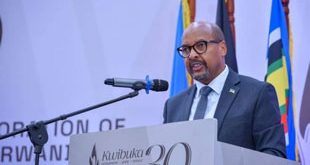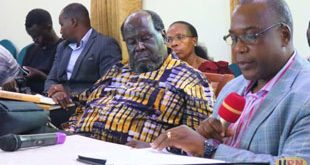
There are still many areas of the county that are underserved when it comes to broadband internet access
Kampala, Uganda | THE INDEPENDENT | The government is seeking to get a USD 500 million loan to cater for investment into the expansion of internet broadband.
This program will involve extending the national backbone infrastructure to every parish in Uganda to cater for rural areas and what is described as hard-to-reach areas, according to the Ministry of Information and Technology and National Guidance.
Currently, the ministry says all districts and specifically towns are connected to the national ICT backbone. However, this has not been adequately utilized especially by the public and private innovators, due to many reasons affecting access and affordability.
The Deputy Executive Director of the National Planning Authority, Charles Oleny says expanding the reach of the connectivity will lead to lower costs which will also make internet-based innovations easier.
However, this comes at a time that even in areas where the services are within reach, they have not been adequately used, with claims that the internet and the gadgets are very expensive.
The government-provided free internet though internet hotspots have been limited to a few places with the program structure deemed not very convenient, as it is accessible only at specific times of the day.
Additionally, public Wi-Fi hotspots have been discouraged by experts and financial institutions as exposing users to hackers.
According to Oleny, the planned expansion will cater to all these and especially the reduction of the costs, as well as providing solutions that do not require electricity to power the internet, according to Oleny.
Oleny was speaking in an interview at the Digital Economy Showcase in Kampala, an initiative of the Innovation Village and the MasterCard Foundation.
This is part of the efforts to enable the innovation industry to power the migration from the cash and substance economy to a digital and IT-led economic transformation.
Japheth C Kawanguzi, the co-founder of Innovation Village in Ntinda, called for increased investment in infrastructure and human capital to ensure that everyone is included in the digital transformation.
Kawanguzi said there are many young people who have tried innovations and some have living examples of their innovations, but they do not have jobs or significant incomes.
He says unless there is a way to ensure that innovation and the digital economy translate into jobs and more income, the country will not benefit from it.
MasterCard also called for infrastructure sharing by those involved in the internet-based sectors, so as to reduce the cost of doing business and in turn make it cheaper for innovators.
The Foundation is running a program, Young Africa Works, in ten countries in Africa including Uganda, targeting 30 million beneficiaries, mainly women and youth, refugees, and people with disabilities in 2030, to ‘access dignified and fulfilling’ livelihoods.
In Uganda, the target is 4.3 million people in different sectors like small-scale farming, who are to be supported through digitization of their operations, information, access to inputs, and marketing among others.
MasterCard’s Country Director, Adrian Bukenya says that the programs are being developed bearing in mind the challenges in the country, like electricity coverage, where solutions that do not need electricity are required.
One financial technology (fin-tech) innovator, Mobipay says it is possible for the most rural and inaccessible to be included in the digital economy.
Mobipay provides information and financial services to rural enterprises like agriculture, where they help people access the necessary information on the market, the weather, and farm requirements, as well as money transfers.
Shafick Kasujja, a tech officer at Mobipay, said that actually, they have solutions that do not need electricity access all the time, while in some places where there is no internet access, their solutions work offline.
He says the challenges they have to include insecurity in places like Karamoja as well as skepticism by the public especially regarding the safety and security of their money.
****
URN
 The Independent Uganda: You get the Truth we Pay the Price
The Independent Uganda: You get the Truth we Pay the Price


